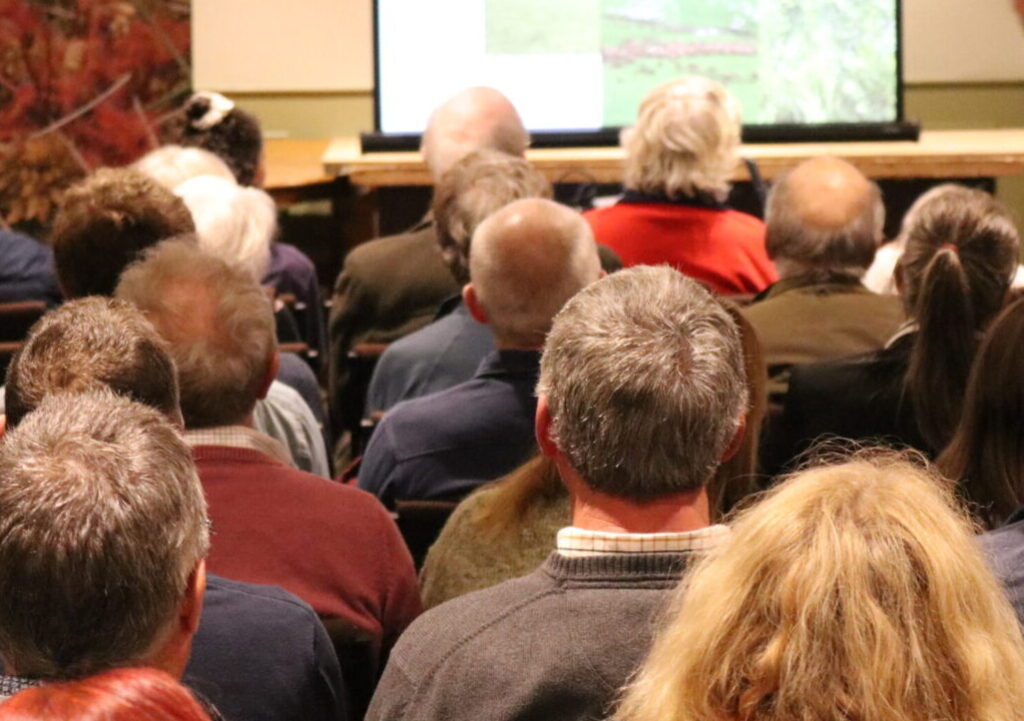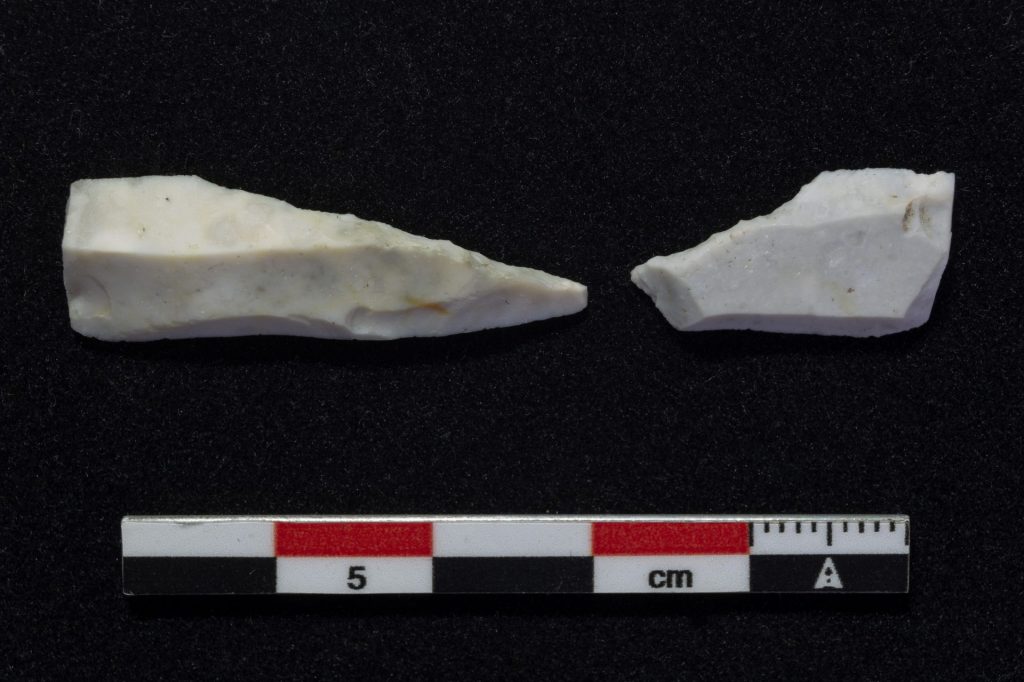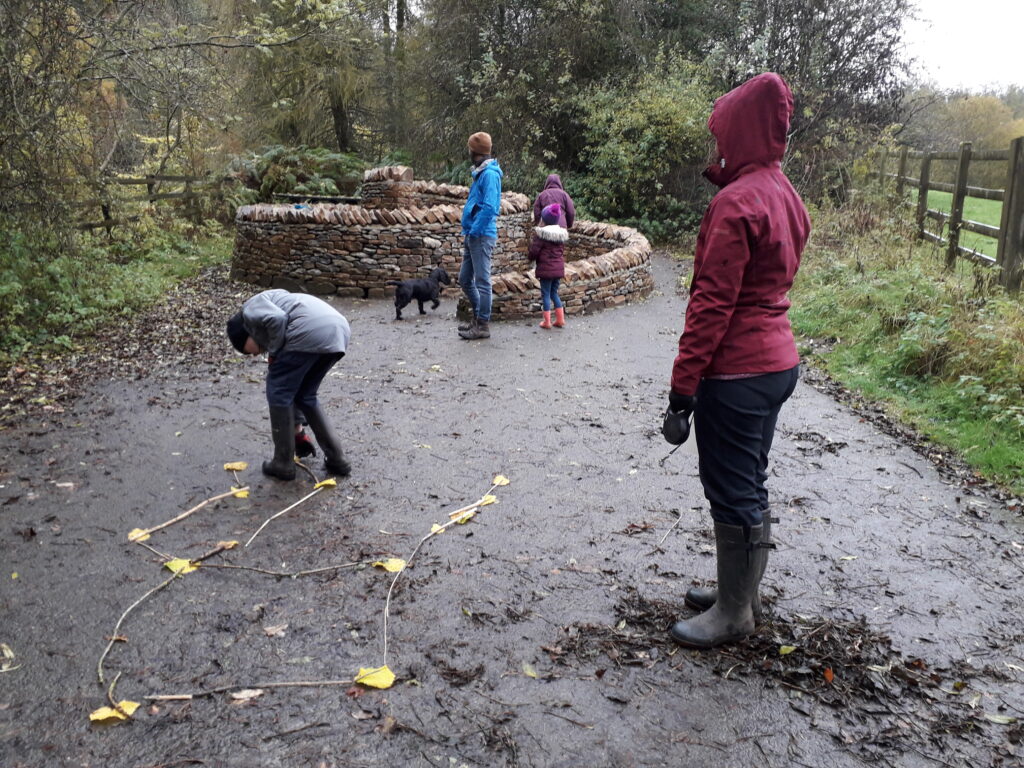News
Eden Valley Climathon explores net zero solutions
Eden Valley Climathon took place at Barrock End Farm near Armathwaite in May 2022
Taking place in the Fellfoot Forward Landscape Partnership Scheme area, the Climathon asked participants “How might we optimise farming and land use in the Eden Valley to achieve net zero?”
The event was organised as two components – the first was a webinar to set the net zero scene for participants, learn about existing projects, and begin the process of identifying local priority actions. Adrian Banford, who leads the Land Use Group within the Zero Carbon Cumbria Partnership (ZCCP), spoke on land use and climate, highlighting the transitions already underway. Roe Baker (Cumbria Action for Sustainability) and Kate Gascoyne (The Farmer Network) spoke about a farm carbon footprint project, delivered as part of the North Pennines AONB Partnership’s Fellfoot Forward LPS, highlighting the significant carbon reductions that could be delivered through actions such as increasing hedgerows and reducing fertiliser inputs.
The second component was an in-person event where participants worked in teams to build net zero projects and creative solutions for the Eden Valley. Seven main themes emerged from the discussions including a mix of social and technical innovations linked to wider issues such as energy, natural capital, and public engagement with the agri-food sector.
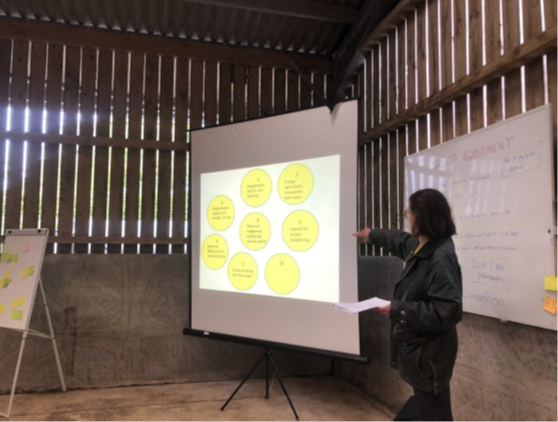
Creating themes at the Eden Valley Climathon. Image credit: (c)Countryside and Community Research Institute (CCRI) at the University of Gloucestershire
The event also included a farm walk, led by the host for the day, Paul Coates. Participants heard about the work being done on the farm to calculate and reduce greenhouse gas (GHG) emissions, including an experiment to test two types of feed (one conventional and one with a lower carbon footprint), different cropping rotation, and ways to improve soil health. The group also visited a wet woodland area that provides an important wildlife habitat and carbon store, and learnt how the farm’s herd of Shorthorns and premium beef fit into the farm’s business plan.
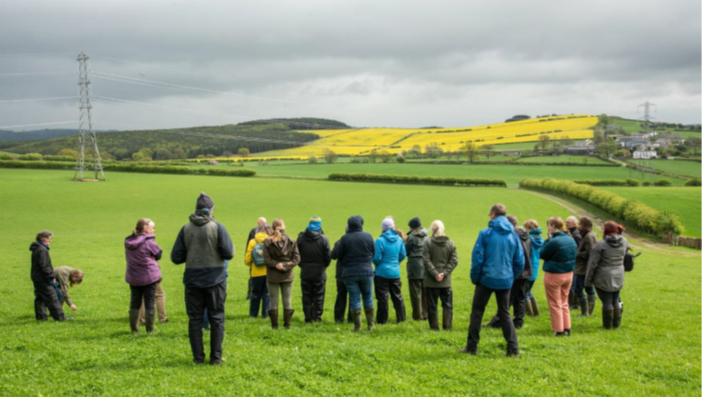
Participants on farm walk. Image credit: (c)Countryside and Community Research Institute (CCRI) at the University of Gloucestershire
After the walk, participants then spent time working on five themes that they saw as a priority for the Eden Valley and created a specific solution. These themes were:
- Voices of Eden – Engagement, advice, and listening (also with the public)
- Elegant Energetics – Energy: agrivoltaics, renewables, farm space
- Soil Not Dirt – Regenerative agriculture and soil health, minimum tillage
- Hedge Fund – Trees and hedgerows, optimising natural capital
- Mucky Business – Resource efficiency and reducing inputs
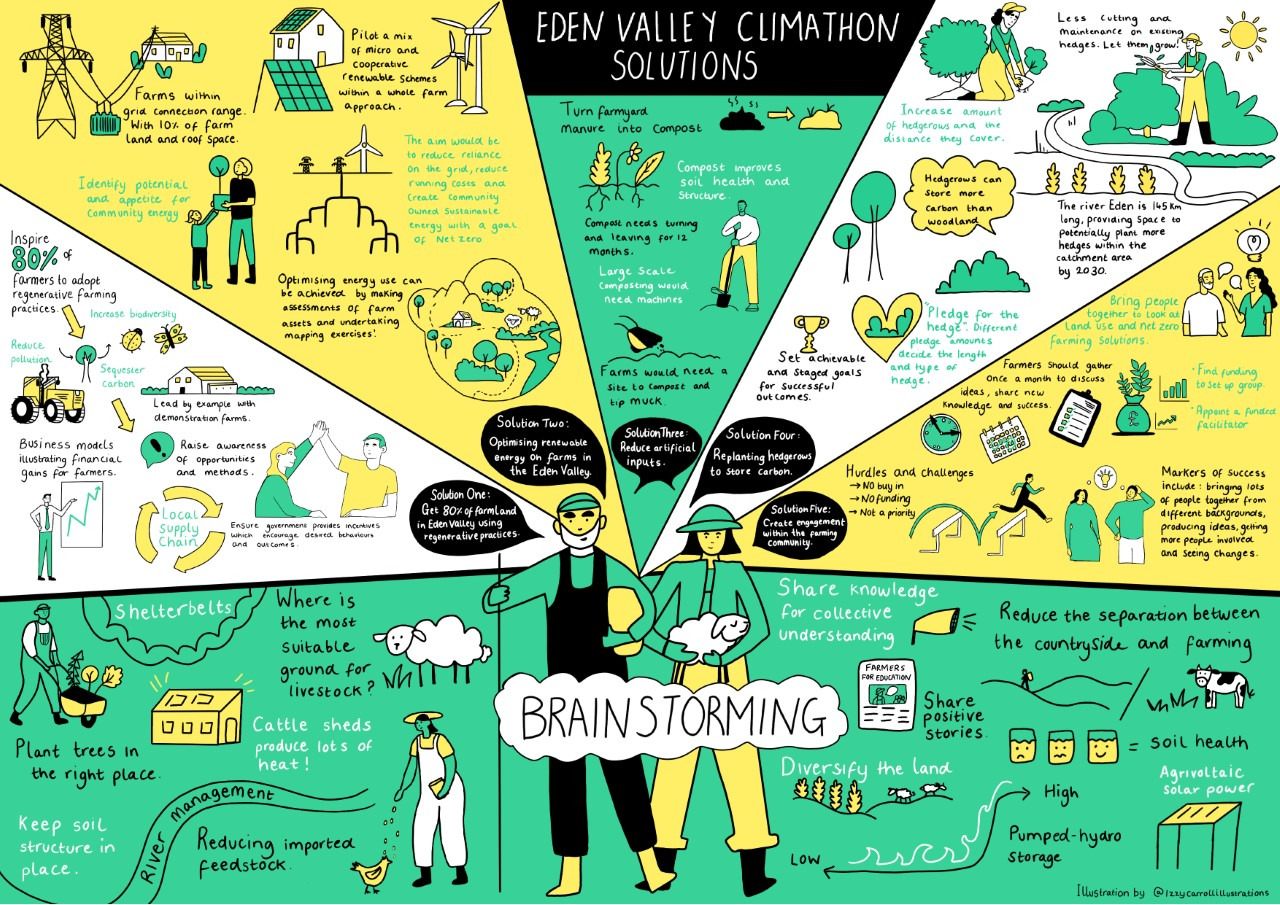
Illustration of Eden Valley ideas and solutions by Izzy Carroll. Image credit: (c)Countryside and Community Research Institute (CCRI) at the University of Gloucestershire
The Eden Valley Climathon resulted in five diverse solutions to these themes around achieving net zero, and created new connections and learnings for the participants. This project was co-ordinated by a team of researchers from the Countryside and Community Research Institute (CCRI) at the University of Gloucestershire, with funding from the British Academy. Local partners that helped with the Eden Valley Climathon event included the North Pennines AONB Partnership, Eden Rivers Trust, The Farmer Network, and Cumbria Action for Sustainability.

